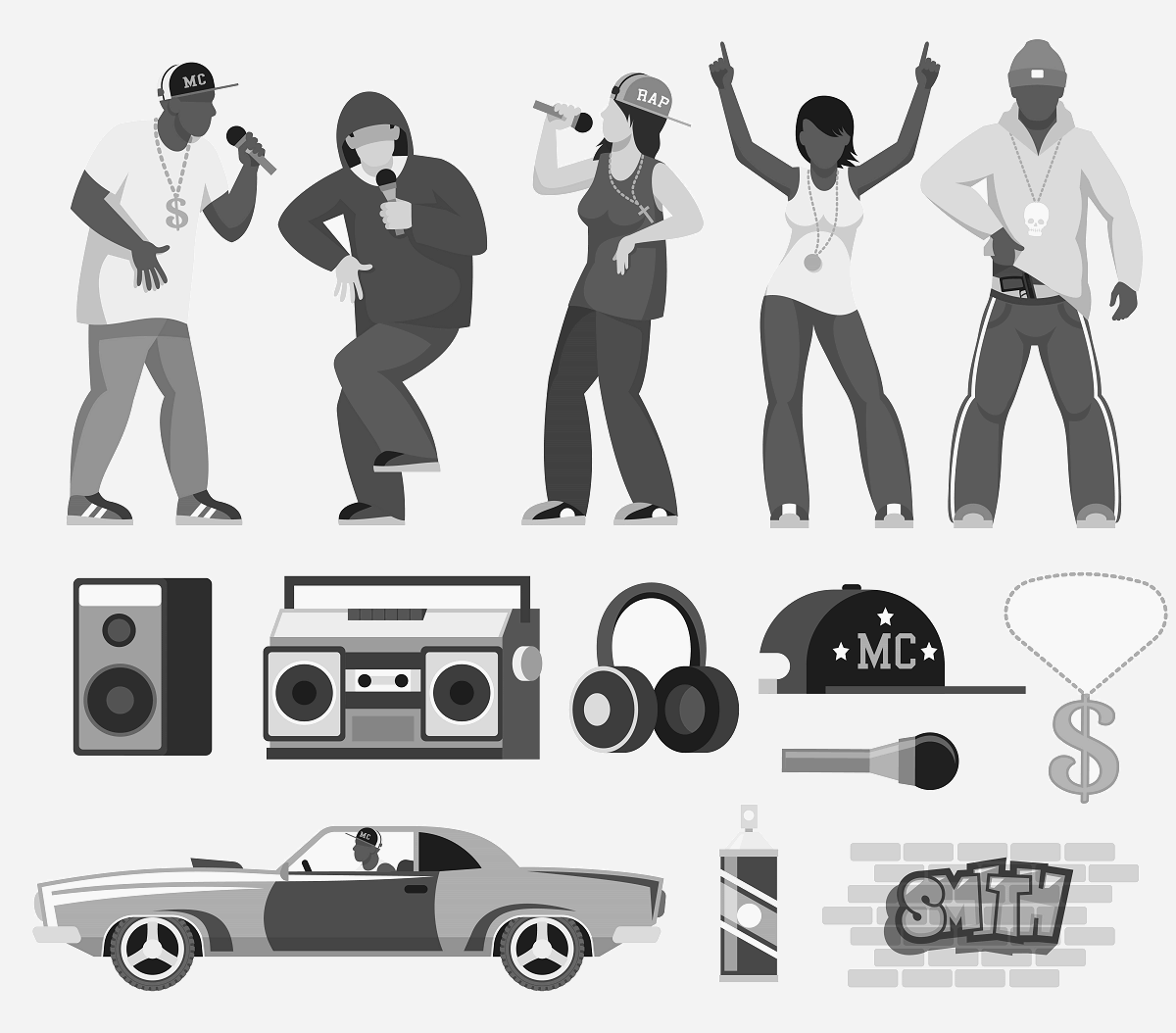
Hip Hop is a genre of music that has its roots in the Bronx, New York in the 1970s. It has since grown into a global phenomenon and has become one of the most popular music genres in the world. Hip Hop is not just a genre of music, it's a way of life. As Kendrick Lamar puts it, "Hip Hop is not just a genre of music, it's a way of life." But what exactly is Hip Hop and where did it come from? In this article, we'll explore the fascinating history and cultural significance of Hip Hop music.
Origins of Hip Hop:
Hip Hop was born in the South Bronx in New York City in the 1970s. The early pioneers of the genre, such as DJ Kool Herc, Afrika Bambaataa, and Grandmaster Flash, helped to lay the foundation for Hip Hop music. DJ Kool Herc is credited with being the first person to loop breakbeats, which would later become the basis for Hip Hop beats. Afrika Bambaataa, on the other hand, was instrumental in introducing the four pillars of Hip Hop culture: MCing, DJing, graffiti, and breakdancing.
Evolution of Hip Hop:
Since its early beginnings, Hip Hop has undergone a significant evolution. In the 1980s, the genre saw the emergence of rap music and the rise of Hip Hop as a cultural movement. During this time, Hip Hop also began to spread beyond the South Bronx and into other parts of the United States and eventually the world. Today, Hip Hop is a global phenomenon and is the most popular music genre in the US, according to a recent study.
Four Pillars of Hip Hop Culture:
MCing, DJing, graffiti, and breakdancing are known as the four pillars of Hip Hop culture. MCing involves rapping and singing over Hip Hop beats, while DJing involves manipulating records and creating new beats. Graffiti is a form of visual art that is often associated with Hip Hop, while breakdancing involves acrobatic and athletic dance moves. These four elements are integral to Hip Hop culture and help to define the genre.
Impact of Hip Hop on Society:
Hip Hop has had a profound impact on society since its inception. The genre has been instrumental in promoting social justice issues and reflecting youth culture. For example, Hip Hop music has been used as a tool for political activism and social justice movements, such as the Black Lives Matter movement. Hip Hop has also had a significant influence on the fashion industry, with iconic brands like FUBU and Rocawear being created by Hip Hop entrepreneurs.
Cultural Significance of Hip Hop:
Hip Hop remains culturally significant even today, more than four decades after its birth. The genre continues to evolve and reflect the experiences of young people and the issues they face. Hip Hop continues to inspire and empower young people and remains an important part of popular culture.
Conclusion:
In conclusion, Hip Hop is a genre of music with a rich history and cultural significance. From its origins in the South Bronx in the 1970s to its current status as a global phenomenon, Hip Hop has had a profound impact on society. The four pillars of Hip Hop culture - MCing, DJing, graffiti, and breakdancing - are integral to the genre and help to define it. Hip Hop continues to be a powerful tool for promoting social justice issues and reflecting youth culture. The cultural significance of Hip Hop is undeniable and the genre will continue to inspire and empower young people for generations to come.
Popular and Engaging Topics

